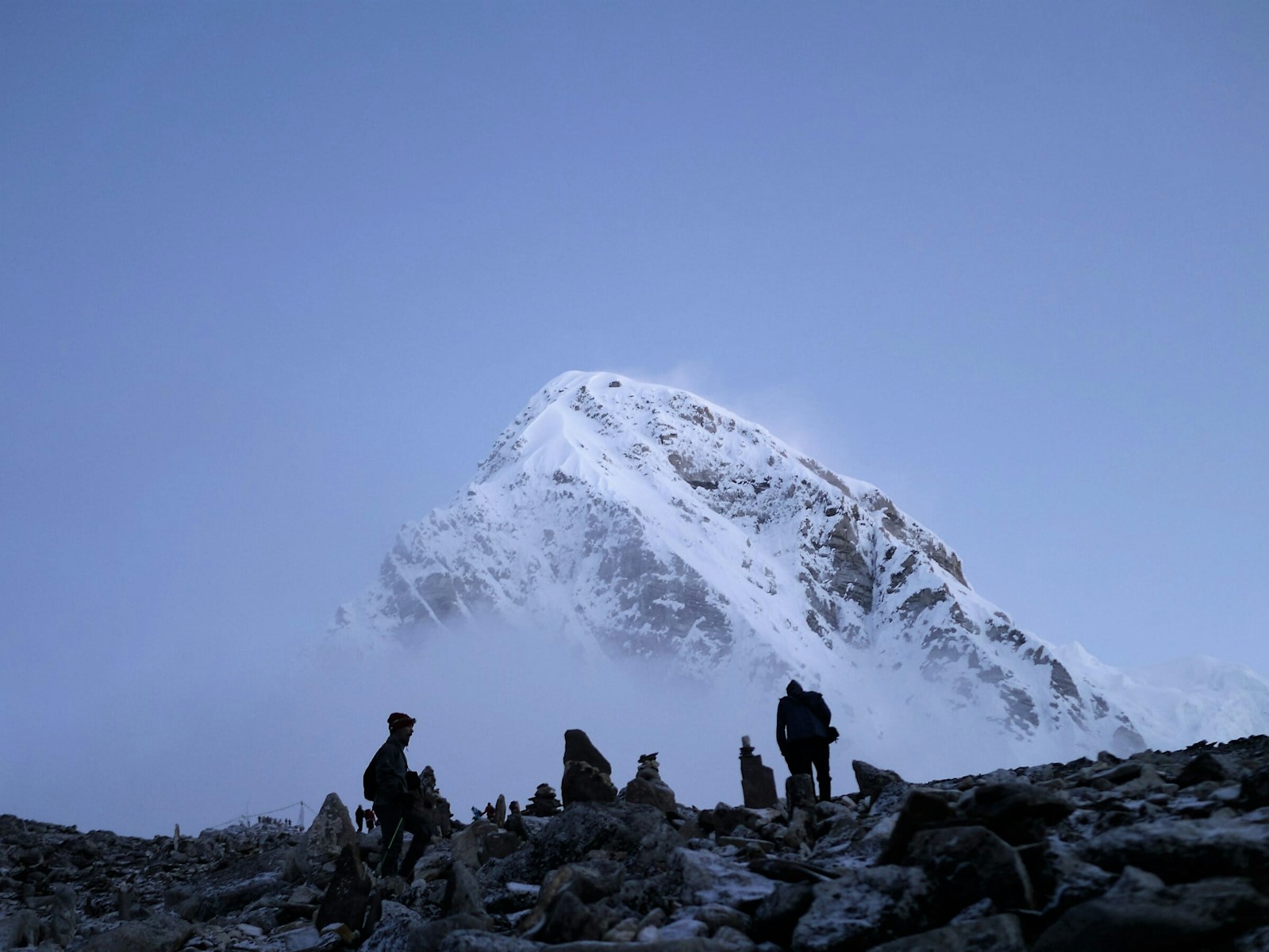
Top 5 Tips To Train Yourself For Everest Base Camp Trek
Posted on: Monday, January 20th, 2025.It is just as important to train for the Everest Base Camp hike as it is to be healthy and mentally fit for any adventure trip. While it may seem easy to season trekkers, there is one question to consider. Is there a minimum level of fitness required for the Everest Base Camp Trek? We need to understand the thing before we can learn about the Everest Base Camp training plan. A trek of about 81 miles (130km) must not be taken lightly due to its distance.
The Everest trail is one of the world’s most popular treks. It could, however, be intimidating for people who are not very fit. While the Everest base camp is difficult, it is manageable for most people with the appropriate training.One of the world’s most popular treks is the Everest trail. It could, however, be intimidating to people who are not fit. It is nevertheless.
As long as you undertake the appropriate training, most people can climb Everest. Before attempting high-altitude trekking, hikers should learn some essential tips.
Key to Successful Trek
Everest Base Camp training is only enough with a strong determination to last for at least two weeks in the cold mountains.
Considering the fact that it is a non-overlook the Everest Base Camp physical fitness requirements. It is in fact, a great challenge for people of all ages and physical conditions. A high level of fitness either before or after the Everest base camp training will guarantee a successful hike. We have witnessed in the past years all stores of people including old, young, overweight, and underweight, complete the spectacular hike.
In order to succeed, the body must acclimatize to the deficiency of oxygen at altitude. We recommend training for an enjoyable trip to Everest base camp, even if you have a reasonable fitness level.
It is also worth knowing the complete packing list for the Everest base camp as it plays a vital role in a successful trekking adventure.
How much training do I need to be fit for the EBC Trek?
1. Trek Duration
Depending on the trekking route, a minimum of 9 days of continuous hiking with a couple of acclimatization days .
2. Trek Distance
A minimum of 4.5 miles of hiking each day while ascending, – Spend enough time prepare
– Pick the right acclimatization schedule
– Build up your fitness over a longer period of time, don’t stuff everything.
– Never ignore a nutritious diet during the training period
– Reduce training exercises at least one week before departure
– Get sufficient tiand at least 9 – 11 miles of hiking while returning from the base camp.
3. Backpack weight
Carrying your own backpack comprising essential items that would weigh around 11 to 15 lbs ( 5 to 7 kg) during the trek.
4 Trekking Altitudes
Trekking at altitudes between 2,500 to 5,500m ( 8,200 to 18, o45ft) with up to 50% oxygen deficiency in the atmosphere on the entire hike.
Physical Training and Fitness required for Everest Base Camp Trek
One of the most important aspects of a successful high-altitude trek like Everest Base Camp Trek one needs to be in strong physical shape. Although it doesn’t require any technical mountaineering training capability, any previous experiences would be an advantage. The following elements are significant in order to attain a structured training course.
– Spend enough time prepare
– Pick the right acclimatization schedule
– Build up your fitness over a longer period of time, don’t stuff everything.
– Never ignore a nutritious diet during the training period
– Reduce training exercises at least one week before departure
– Get sufficient time to rest before starting the actual trek
– You can review the training section and types of exercise that need to be carried out a few months ahead of trekking in the Himalayas.
– Read below the physical training tips in detail, start utilizing resources and schedule your training plan accordingly.
Practice Short Hike
Having a blister is one of the worst experiences on the first day of hiking in the Himalayas. Practice short hikes will make your trekking journey perfect, at least allow you to break in your hiking boots and you get to understand the stress your knee will be getting on the real walk. Hiking is one thigh you can do on your training plan, even if you don’t do the others. During at least 3 to 4 short hikes with a minimum duration of 5 to 6 hours without problems will allow you to do your Everest trek comfortably.
Cardiovascular Conditioning
Exercise that helps to prepare our body to deal with oxygen deficiency for a long period of time is cardio training. It is sometimes also known as aerobic exercise. This is the first type of training we recommended to all trekkers and it basically stops you from being breathless. For this, we suggest running, walking on the titled treadmill, doping stair stepping, walking uphill and downhill, or taking aerobic classes.
Biking, swimming, and cycling are some other cardiovascular exercises that we can opt for. It is also quite helpful to build up endurance when carrying weight packs during training sessions. Etting used to the weights and gradually increasing it while training on uphill walls will make is easier on the actual trek. Three to four training sessions of persistent activity for half an hour each is productive. Four to six aerobic sessions for about an hour each are also useful for doing the Everest Base Camp Trek.
It is fruitful to build up the overall strength. Especially in the lower back, abdominal areas, legs, and upper back. It is also rewarding that you train with free weights, bodyweight and gym exercises, or a backpack.
3. Strength Conditioning
Although it is not as important as aerobic or cardiovascular conditioning, firming up the leg muscles will help increase enjoyment on the trek. So, we recommend a training plan that combines strength training while going for a trek to Everest base camp. 5 to 6 hours of walking with a backpack on your back means that each part of your body has to be physically strong. It can be attained when you include lift training along with aerobic exercises. For building up strength in your legs, we recommend the following:
– Step-ups
– Squats
– Pull – Ups
– Bench Presses
– Push – Ups
– Leg curls ( front and reverse)
– Lunges
– Deadlifts
– Overhead presses
Doing the exercises with the correct technique is very important because doing them incorrectly can harm you. There is no doubt that the legs are the most significant parts of the body that also need to be conditioned. And this is because you will be carrying you’re your personal stuff and gear all the way up to the base camp. We recommend the following exercises so that it helps strengthen the upper body:
– Sit-ups
– Shoulder presses
– Kettle-bell rows
– Back & shoulder fly
During the training process, you will need to gradually shift your focus on building strength, endurance, and mental as well as physical energy. It is very important that you fluctuate with the use of weight during each phase of training. Also, it is vital that you get proper rest intervals between each set of exercises you do. Maintaining proper form is equally important while undertaking any of the training phases to prevent injuries or strains.
4. Mental Conditioning
Mental endurance is often neglected by many climbers, but it is just as important as other training sessions. Some days on the EBC Trek are comparatively tough, so you need the right attitude. However, getting mentally trained is no easy task. In fact, mental stamina is the only thing you have left when your body is physically exhausted from long walks.
On the other hand, imagination is an influential channel here. In sports, it is beneficial if you pretend to be doing the base camp trek and assume you are already in the mountains. If you allow your training partner to push you to your limits during training, you will certainly become more mentally resilient. A half marathon or a full marathon is also a great fitness goal that will help with your fitness and mental toughness. If you are able to complete this, you will surely be able to complete the EBC trek with ease.
The bottom line is, it’s just not cardiovascular conditioning or strength conditioning that’s going to help you prepare. With the right physical training, attitude, and strong mental determination, one can have a safe and successful trekking experience.
one can have a safe and successful trekking experience.
5. General Conditioning For Everest Base Camp Trek
In summary, here’s what you need to know about general conditioning for the trek to Everest Base Camp:
Base Camp:
– Training involves hiking with a targeted weight on your back.
– Climb at least 1,000m with a backpack weighing at least 12-18kg in 2-3 hours.
– Gradually increase the weight daily for one to two weeks.
– When exercising outdoors, gradually put on a heavy backpack and also heavy boots or hiking shoes.
– Use s Step – a mill that looks like a moving staircase when you work out in a gym.
– If you are in an area that does not have small hills or mountains, you need to add some more gym exercises to your body during the training phase by at least one rest day per week.
– During the final week of training, gradually reduce the intensity of your exercise routines to give you time to rest and prepare both mentally and physically.
– Overall, you need a training period of 3 to 5 weeks before you start the actual trek.
– Besides the basic training and exercises, there are a few other things you need to know.
– This will help you stay healthy and alert throughout the duration of the trek.
– It’s also helpful to understand the effects of altitude sickness.
– Adopting a slow and steady pace on the trail and getting proper rest at regular intervals is the best tactic to avoid altitude sickness.
These Tips Will Help You Avoid Altitude Sickness During The Everest Base Camp Trek
Tips at least 3 to 4 liters of water on each trekking day.
– Refrain from any alcoholic beverages and smoking during the trek
– You need to take preventive medicines whenever it is absolutely necessary – don’t ignore that.
– While climbing to the higher elevation, hike in smaller increments rather than pushing much higher.
– Always make sure to sleep in lower elevations even if you are hiking higher on a day.
– Lastly, pick only the reputed trek operator and/ or guide who doesn’t fail to assist you in case of any emergency in the mountains.
Lastly, a few words
Almost anyone can tackle the Everest Base Camp Trek, which is one of the most popular treks in the world. A good physical condition and a very positive attitude are all you need for at least two weeks of high-altitude hiking. With a good level of fitness and a very positive attitude, all you need for EBC trekking, trekking to Everest base camp can become an incredible experience. When your cardiovascular system is performing at its best, the trek becomes more and more worthwhile.

